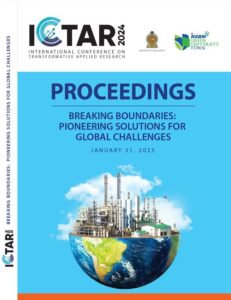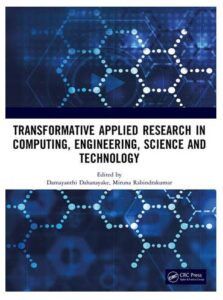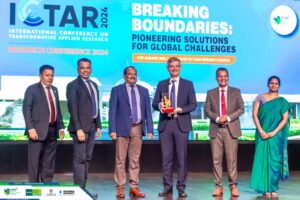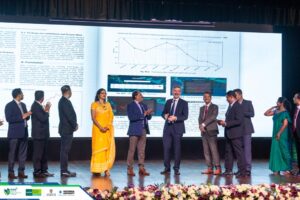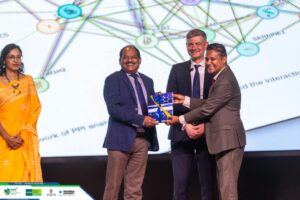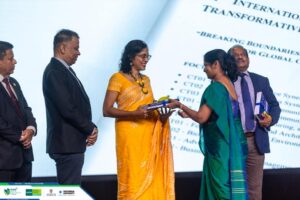- +0115445333
- ictar@nsbm.ac.lk
- NSBM Green University
- +0115445333
- ictar@nsbm.ac.lk
- NSBM Green University
Welcome To ICTAR 2025!
The International Conference on Transformative Applied Research (ICTAR) returns for its second edition in 2025, building on the success of its inaugural event. Following a highly productive first conference—where research was published in collaboration with Taylor & Francis, significantly enhancing authors' visibility and reach—ICTAR 2025 continues to serve as a global forum for innovation. This premier gathering brings together leading researchers, industry experts, and policymakers to exchange knowledge, address emerging challenges, and shape the future of technology-driven solutions.
With a strong interdisciplinary focus, ICTAR fosters meaningful dialogue between theory and practice, driving advancements that contribute to economic growth, technological evolution, and societal progress. Join us as we explore groundbreaking research, forge new collaborations, and work toward a smarter, more sustainable world.
- Top Selected full papers will appear in Taylor and Francis international academic publisher.
- Outstanding full articles will be recommended to Scopus-indexed journals, providing a gateway to global academic recognition.
Important Dates!
Top Selected full papers will appear in Taylor and Francis international academic publisher.
Conference
30th January 2026
Full Paper Submission
15 th June 2025
Extended to 22 nd June 2025
Author Notification
1 st August 2025
Camera-ready copysubmission
30th September 2025
Guests for Pre - Conference Workshops
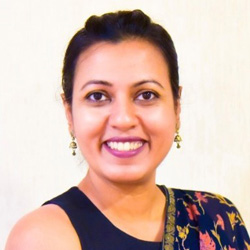
Prof. Arosha S. Adikaram
Chair Professor of Human Resource Management
Faculty of Management and Finance
University of Colombo
Topic: “Thriving in academia: Practical approaches to work-life balance”
Time: from 9.30 am to 10.30 am
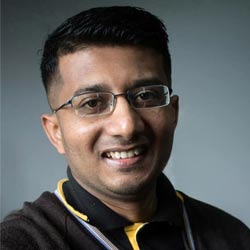
Dr. Srinath Dissanayake
Senior Lecturer
Department of Commerce and Financial Management
Faculty of Commerce and Management Studies
University of Kelaniya
Topic: “From Data to Publication: Web Tools for Effective Research”
Time: from 10.30 am to 12.30 am
Conference Tracks
This track explores the symbiotic relationship between artificial intelligence and data science, aiming to unlock new frontiers in intelligent decision-making and knowledge discovery. Topics uncover interdisciplinary approaches, novel algorithms, and innovative applications that harness the power of data-driven insights to advance AI capabilities, paving the way for transformative innovations across various domains.
This track explores the evolving landscape of digital technologies and the imperative of safeguarding information assets. Topics of this track uncover emerging trends, novel strategies, and cutting-edge technologies aimed at addressing cybersecurity challenges, ensuring data privacy, and fostering resilience against evolving cyber threats in the digital age.
This track encompasses the convergence of technology and lifestyle to enhance quality of life and connectivity. Topics include advancements in IoT, communication systems, and smart infrastructure, aiming to foster sustainable urban development, efficient resource management, and seamless connectivity for a smarter and more interconnected world.
This track focuses on advancing sustainable energy solutions and efficient communication networks. Topics of this track uncover innovations in power generation, distribution, and management, alongside developments in communication technologies, aiming to address global energy challenges and enhance connectivity for economic and societal development.
This track explores cutting-edge technologies and methodologies revolutionizing industrial processes. Topics include advancements in automation, robotics, and digital manufacturing, aiming to enhance productivity, efficiency, and sustainability across diverse industrial sectors, thereby shaping the future of manufacturing and industrial operations.
This track explores innovative approaches and technologies driving advancements in infrastructure and built environments. Topics of this track include sustainable construction practices, resilient design strategies, and novel architectural concepts, aiming to address contemporary challenges and shape the future of urban development with a focus on functionality, aesthetics, and environmental stewardship.
This track delves into interdisciplinary solutions for sustainable food production and environmental conservation. Topics include innovations in agricultural technologies, food security initiatives, and environmental management strategies, aiming to address global challenges such as climate change, biodiversity loss, and food insecurity while promoting resilient and equitable agricultural systems.
This track focuses on groundbreaking discoveries and innovations in healthcare and medical sciences. Topics uncover cutting-edge developments in biotechnology, medical devices, and therapeutic interventions, aiming to accelerate progress toward improved diagnosis, treatment, and prevention of diseases, ultimately advancing human health and well-being on a global scale.
This track delves into the forefront of materials science, exploring novel materials with unparalleled properties and functionalities. Topics include advancements in nanotechnology, biomaterials, and smart materials, aiming to drive innovation in various industries, from electronics and energy to healthcare and aerospace, thus paving the way for transformative applications and technological breakthroughs.
This track is designed for scholars interested in the rigorous analysis of decision-making within firms and financial institutions, as well as the broader economic forces shaping these decisions. It bridges theoretical and empirical approaches across business economics, financial management, and accounting, with a focus on the interplay between firm behavior, capital markets, and financial reporting.
This track offers a research-driven exploration of the strategic, operational, and regulatory dimensions of organizational performance. It emphasizes the integration of management theory with the pursuit of operational excellence and adherence to legal and ethical standards.
This interdisciplinary track explores the dynamic intersections of consumer behavior, cultural engagement, knowledge dissemination, and communication in both digital and physical spaces. It brings together research in marketing strategy, tourism studies, educational innovation, and media theory to examine how value is created, experiences are shaped, and information is transmitted across diverse sectors.
Full Paper Submission Guidelines
- Authors should upload their blind full paper (leaving out the names of authors and their affiliations to review) as the initial submission to the CMT portal, and details of ALL AUTHORS must be added to the DECLARATION FORM. Use the prescribed template.
- A full paper submitted with the authors’ details will not be considered for review, and authors will be requested to resubmit according to the instructions given above.
- Research work presented or published elsewhere will not be considered.
- If plagiarism is detected, the full paper will be rejected without further consideration.
- Please submit the camera-ready full paper using the prescribed template.
- The full papers will undergo a double-blind peer review process and, the accepted papers will be eligible for either oral or poster presentations.
- Researchers living abroad with accepted papers are allowed to present their papers online.
- Researchers residing in Sri Lanka with accepted papers are required to present their papers in person at the conference.
- "Top Selected full papers will appear in Taylor and Francis international academic publisher."
- Outstanding full articles will be recommended to Scopus-indexed journals, providing a gateway to global academic recognition.
- Responsibilities of Authors:
-
Authors are expected to present original research that has not been published elsewhere. All data, methods, and findings should be accurately reported, without fabrication, falsification, or inappropriate data manipulation. Authors must properly acknowledge the contributions of others, including citing relevant work. Plagiarism, in any form, is unacceptable and will result in the rejection of the submitted paper. Furthermore, authors should disclose any potential conflicts of interest that might influence the results or interpretation of their work. Submitting the same manuscript to multiple conferences or journals simultaneously is considered unethical and is strictly prohibited.
- Handling Ethical Misconduct:
-
The “ICTAR’25” takes ethical misconduct seriously and has established procedures to address such issues. If unethical behaviour is suspected, the editorial board will investigate the matter thoroughly. If misconduct is confirmed, appropriate actions will be taken, which may include the rejection of the manuscript, notifying the authors’ institutions, and banning the authors from future participation in the conference. All investigations and actions will be conducted in accordance with the principles of fairness, confidentiality, and transparency.
- Plagiarism Prevention:
-
To maintain the integrity of the conference proceedings, all submitted manuscripts will be screened for plagiarism using specialized detection software. Manuscripts found to have a similarity index exceeding 10% will be scrutinized, and authors may be asked to revise or provide explanations for the overlaps. Instances of confirmed plagiarism will lead to the rejection of the manuscript and may result in further disciplinary actions.
Responsibilities of Reviewers
Reviewers play a critical role in the peer review process, and they are expected to provide fair, objective, and constructive feedback on submitted manuscripts. They should evaluate the work based on its intellectual content without regard to race, gender, sexual orientation, religious belief, ethnic origin, citizenship, or political philosophy of the authors. Reviewers must maintain the confidentiality of the manuscripts they review and must not use information obtained during the peer review process for personal gain. Any potential conflicts of interest should be disclosed to the editorial board, and reviewers should recuse themselves from the review process if they feel unable to provide an impartial evaluation.
Responsibilities of the Editorial Board
The editorial board is responsible for ensuring the integrity of the publication process. They should make decisions on submissions based solely on the academic merit of the work and its relevance to the conference’s scope. The editorial board must ensure that the review process is conducted fairly, confidentially, and without bias. They are also responsible for identifying and addressing any ethical issues that may arise, such as suspected plagiarism, data manipulation, or conflicts of interest. The board is committed to maintaining transparency throughout the publication process and will take appropriate action in cases of malpractice, which may include rejecting manuscripts, issuing retractions, or reporting misconduct to the authors’ institutions.
Conference Committe
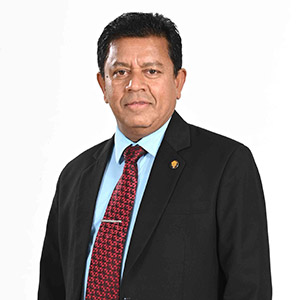
- Phone:+1 (859) 254-6589
- Email:info@example.com
Chief Advisor
Prof. Baratha Dodankotuwa
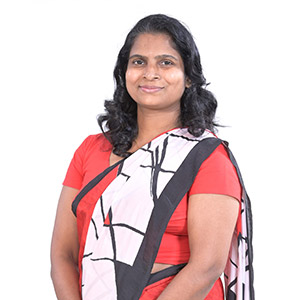
- Phone:+1 (859) 254-6589
- Email:info@example.com

- Phone:+1 (859) 254-6589
- Email:info@example.com
Editor-in-Chief
Dr. Bhagya Deepachandi

- Phone:+1 (859) 254-6589
- Email:info@example.com
Associate Editor
Dr. Rasika Ranaweera
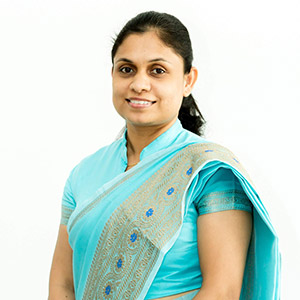
- Phone:+1 (859) 254-6589
- Email:info@example.com
Co-chair
Dr. Nuwanthi Katuwavila

- Phone:+1 (859) 254-6589
- Email:info@example.com
Co-chair
Ms. Shashini Gayanika

- Phone:+1 (859) 254-6589
- Email:info@example.com
Co-chair
Dr. Udara Arachchige
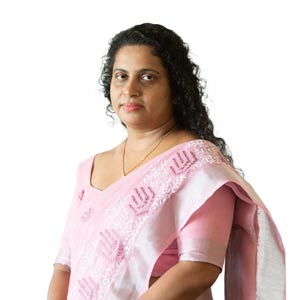
- Phone:+1 (859) 254-6589
- Email:info@example.com
Co-chair
Dr. Pabudi Abeyrathne
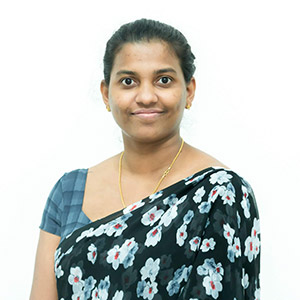
- Phone:+1 (859) 254-6589
- Email:info@example.com
Co-chair
Dr. Piyumi Wickramasinghe
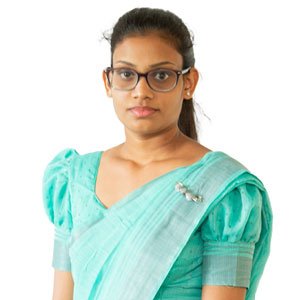
- Phone:+1 (859) 254-6589
- Email:info@example.com
Conference Secretary
Ms. Kushani Perera
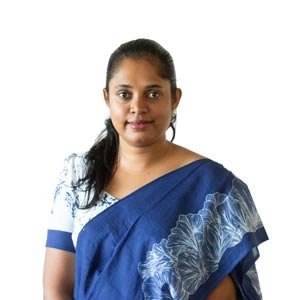
- Phone:+1 (859) 254-6589
- Email:info@example.com
Conference Secretary
Ms. Thaksala Weerasekara
Contact Us For More Info!
Location
NSBM Green University, Mahenwaththa, Pitipana, Homagama, Sri Lanka 12000
Phone
Ms. Kushani Perera +94706445341
Ms. Thaksala Weerasekara +94711874217
ictar@nsbm.ac.lk
ICTAR 2024
ICTAR 2024 Successfully Concluded
The International Conference on Transformative Applied Research (ICTAR) organised by the Research Council of NSBM Green University unfolded on 31st January at NSBM Premises. With the topical theme of “Breaking Boundaries: Pioneering Solutions for Global Challenges” ICTAR 2024 This international research conference convened a diverse community of scholars, researchers, and practitioners from around the globe to explore innovative approaches and breakthroughs in applied research across various disciplines.
This international conference was launched with the inauguration ceremony held at the Auditorium. It was graced by the presence of the Vice Chancellor of NSBM Green University, Prof. E. A. Weerasinghe, Deputy Vice Chancellor, Prof. Chaminda Rathnayake, Head – Academic Development and Quality Assurance, Prof. Baratha Dodankotuwa, Deans of the faculties, international and local researchers, industry experts, entrepreneurs, academics and students of NSBM.
The ceremony featured keynote speeches by two eminent scholars, Prof. Bogdan Ghita, Associate Dean (International), Faculty of Science and Engineering, University of Plymouth, United Kingdom and Prof. Neelika Malavige, Senior Professor, University of Sri Jayewardenepura, Sri Lanka.

